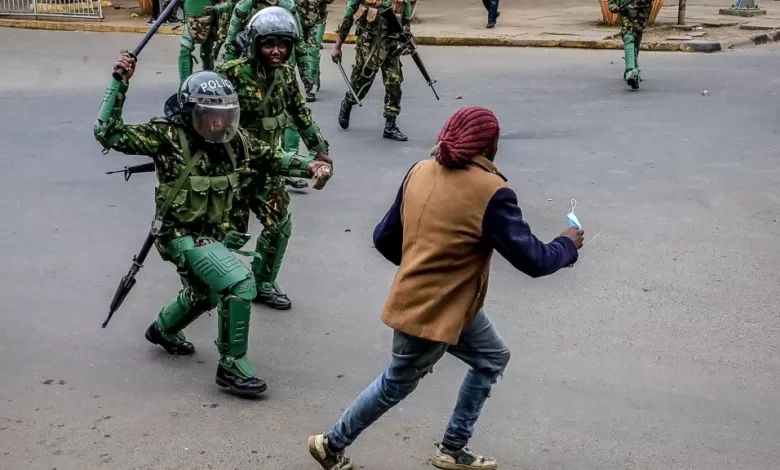Kenya Bans Protests In Nairobi Citing Public Safety Concerns

- Kenyan authorities have banned protests
- This follows a month of anti-government demonstrations
- Rights groups report at least 50 fatalities
Kenyan authorities have banned protests in central Nairobi and surrounding areas “until further notice.” This decision follows a month of anti-government demonstrations that have resulted in numerous deaths.
The protests, initially sparked by unpopular tax increases that were later withdrawn, have evolved into broader demands for President William Ruto’s resignation. New protests are planned for Thursday, with online calls gathering momentum.
However, Kenyan police, citing “credible intelligence” about criminal infiltration and a “lack of designated leadership” in past demonstrations, announced a ban on protests in the capital. They argue that these factors make it difficult to maintain public safety and enforce safety protocols.
The police decision has sparked online criticism, with some questioning its legality in light of Kenyans’ constitutional right to protest. A heavy police presence already exists in Nairobi in anticipation of Thursday’s planned demonstrations.
Despite some concessions, including scrapping the controversial finance bill and dismissing the entire cabinet, public anger remains high. Protesters demand further action on issues like bad governance, corruption, and police accountability for protest-related deaths. Rights groups report at least 50 fatalities and over 400 injuries since the protests began in mid-June.






